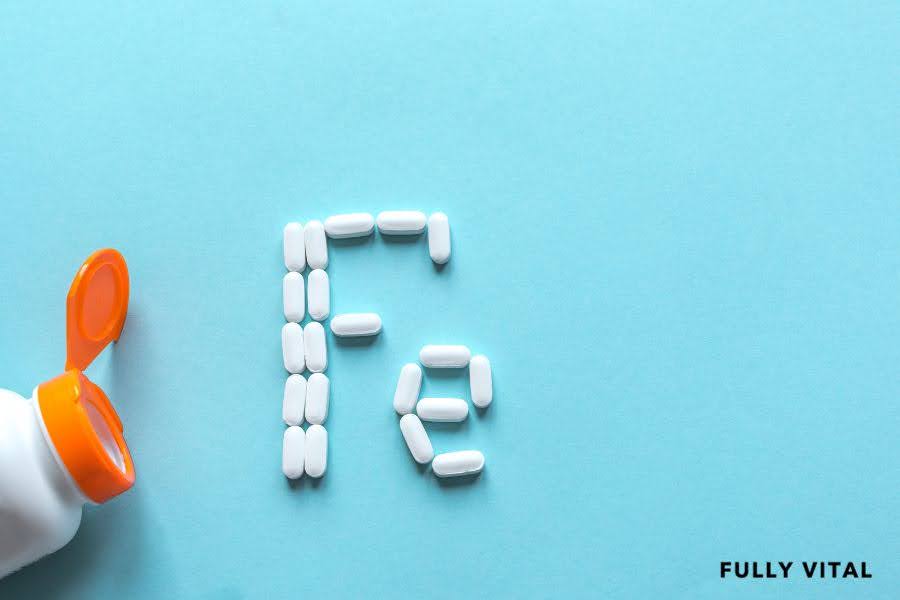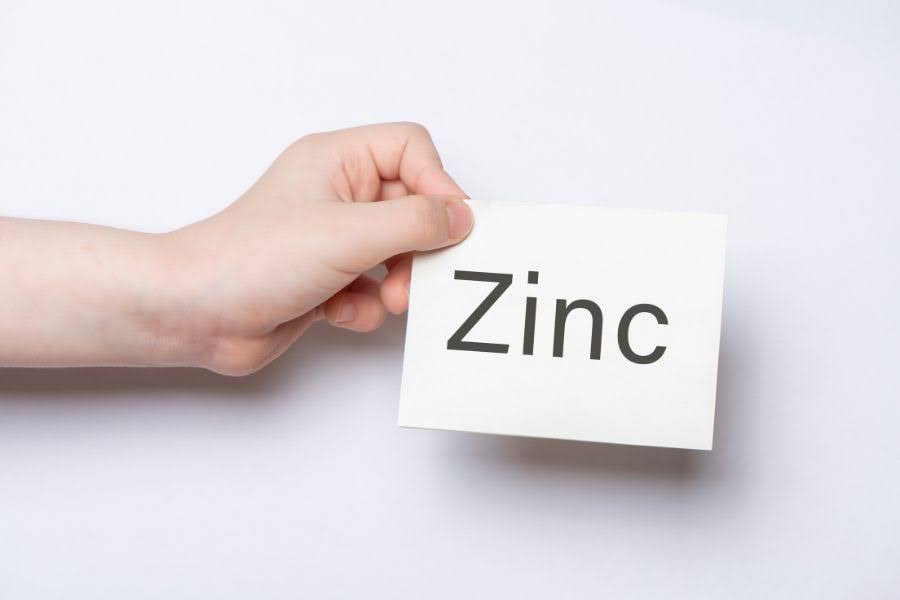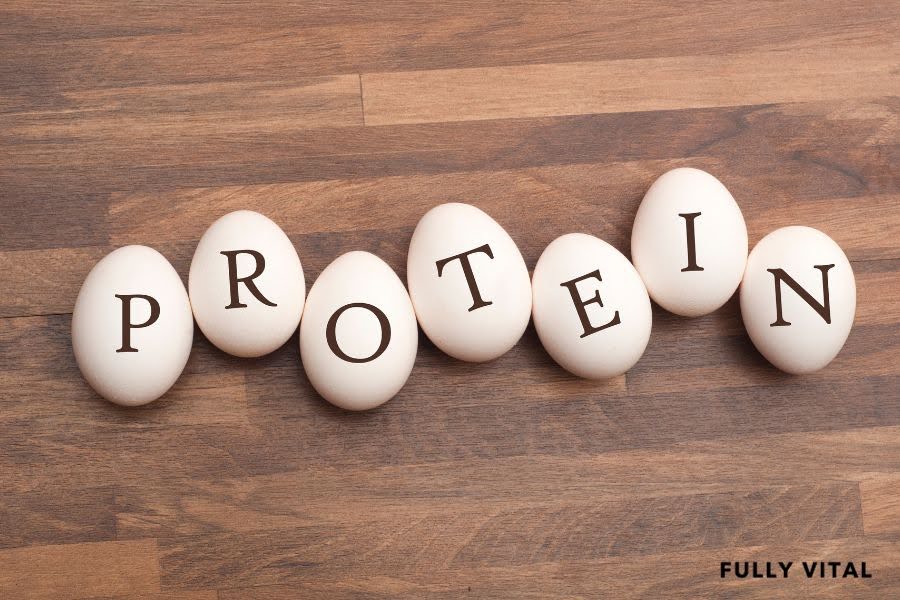
Iron Out Your Hair Issues: A Guide to Healthier Hair
Hair health is a reflection of our overall well-being, and a host of factors contribute to the strength, luster, and vitality of our hair.
Among the lesser-known yet vital contributors to hair health is iron, a mineral that plays a key role in our body's physiological processes.
While often associated with energy levels and circulation, iron's relevance to hair health is sometimes overlooked in the conversation around nutritional supplements and hair care routines.
This article will illuminate the critical function iron serves in maintaining healthy hair, explain how iron deficiency can affect hair health, discuss the symptoms of iron deficiency related to hair, and explore both dietary sources of iron and the potential benefits of supplementation for hair growth.
Address iron deficiency's impact on hair health with FullyVital's products, designed to support strong and vigorous hair growth naturally.

I LOVE MY HAIR NOW
FullyVital hair serum and hair vitamins made tremendous improvements in my hair. I truly love my hair now.
Shop Hair ProductsThe Importance Of Iron For Hair Health
Iron's Role In Hair Development And Renewal
Iron is a mineral that is crucial for the proper synthesis of DNA in hair follicles, which is necessary for the hair growth cycle to proceed smoothly, especially during the anagen phase.
This phase involves the active production of hair, and iron deficiency can compromise this growth.
Not only does iron play a role in the multiplication of follicular cells, but it also affects how quickly the hair grows and how strong it will be.
Hair loss is one of the tangible symptoms that may reflect insufficient iron levels.
Iron supplementation may aid in restoring the hair growth cycle to its normal state in those diagnosed with iron deficiency.
Ensuring that the body has enough iron is vital for maintaining a healthy, uninterrupted cycle of hair renewal and growth.
Oxygen Transport To Scalp And Follicles
Iron's crucial role in forming hemoglobin is integral to the transportation of oxygen in the bloodstream, including to the scalp and hair follicles.
Oxygen is not only necessary for energy production but also for the repair and regeneration of tissues, including those that support hair growth.
A scalp that is well-oxygenated can promote a healthy environment for hair follicles, thereby maximizing their potential to generate hair strands.
When iron levels drop, it could lead to inadequate oxygen reaching these critical areas, resulting in weakened hair performance.
This underscores the importance of maintaining appropriate iron levels for healthy hair follicle functioning.
Monitoring iron intake helps ensure hair growth isn't stifled by a preventable deficiency.
Collagen Synthesis And Hair Structure
Collagen is a pivotal component for the integrity of hair, and iron is involved in the synthesis of this structural protein.
Without the proper levels of iron, the body might not produce enough collagen, which could lead to weaker hair strands.
Collagen provides the structural foundation for hair, contributing to its strength and preventing breakage.
Iron's role in the creation of collagen demonstrates the interconnected nature of nutrients when it comes to hair health.
Iron deficiency can therefore have a domino effect, where a lack of collagen leads to compromised hair structure and consequently, more fragile hair shafts.
To maintain hair in good condition, it's crucial to include sufficient iron in one's diet.
How Does Iron Deficiency Affect Hair?
Disruption In The Hair Growth Cycle
Iron deficiency can significantly influence the lifecycle of one's hair, pushing hairs into the resting phase, known as the telogen phase, earlier than normal.
Not only does this result in excessive hair shedding, but it can also decrease the overall volume and thickness of hair on the scalp.
In severe cases, iron deficiency can lead to telogen effluvium, a condition characterized by widespread hair thinning without any visible patchiness.
Sustaining adequate levels of iron is necessary to maintain natural growth rhythms and to support the transition of hair follicles through their cycles.
Correcting iron deficiency through dietary improvements or supplementation can help reverse these effects and restore healthier hair growth patterns.
It's critical to consult with a healthcare provider to determine the best course of action for rectifying such deficiencies.
Impact On Hair Follicle Health
Without sufficient iron, hair follicles suffer, receiving less of the crucial resources required for the growth of new hair.
This undernourishment can escalate to hair that appears thin and lackluster, reflecting the suboptimal state of the follicles.
In the longer term, this deficiency can result in a visible reduction in hair density and coverage.
Hair follicles are mini organs that rely on a blend of nutrients, including iron, to function optimally and produce robust strands of hair.
Recognizing the early signs of iron deficiency is key to addressing it before it significantly impacts follicular health and hair appearance.
Individuals concerned about the health of their hair follicles should consider having their iron levels checked as part of a broader health assessment.
What Are The Symptoms Of Iron Deficiency Related To Hair?
Increased Hair Shedding
Hair falling out more readily than usual can be one of the earliest warning signs of iron deficiency.
Unlike normal hair shedding, which typically involves losing about 100 hairs a day, iron deficiency can cause this number to increase significantly.
This symptom indicates a disruption in the natural growth cycle of hair and is often most noticeable when brushing hair or after a shower.
Hair strands can appear weaker and may break more easily, contributing to an overall higher rate of shedding.
If such increased hair shedding persists, it could signify that your scalp is not receiving enough iron to sustain normal hair growth rates.
An evaluation by a health professional can confirm whether iron deficiency is at the heart of the problem.
Slow Hair Growth
Iron plays a pivotal role in cell division and growth, which includes the regenerative cycles of hair follicles.
Reduced iron levels can dramatically slow down the hair growth process, which might become evident when hair doesn't seem to grow longer over a typical period.
Slow hair growth might also coincide with other symptoms of iron deficiency, such as fatigue and pallor, since iron is so integral to overall health.
Noticing that one's haircuts last unusually long or that trims are needed less frequently may suggest that it's time to examine iron intake.
For those experiencing unexplained slowdowns in hair growth, ruling out iron deficiency as a contributing factor is a practical step.
Adjusting one's diet or incorporating supplements after consultation with a healthcare provider could restore hair growth speed to normal levels.

What Foods Are Rich In Iron For Promoting Healthy Hair?
Animal-Derived Iron Sources
Meat, poultry, and seafood are excellent sources of heme iron, which boasts a high bioavailability, meaning it's easily absorbed and used by the body.
Incorporating these foods into one's diet can effectively increase iron levels to support hair health.
Besides the immediate benefits for hair, heme iron from these foods aids in overall health and endurance, thus indirectly promoting a healthy scalp environment.
Regular consumption of these iron-rich foods can contribute to sustained hair growth and quality.
However, for those who prefer or are required to follow a plant-based diet, other sources of iron are available to maintain healthy hair.
Plant-Based Iron Sources
While non-heme iron found in plant sources like legumes, seeds, and leafy greens isn't as readily absorbed as heme iron, it is still a significant contributor to iron intake, especially for vegetarians and vegans.
Eating these foods in combination with vitamin C-rich fruits and vegetables can enhance the absorption of iron and maximize its availability for hair follicle health.
It's important to incorporate a diverse range of iron-rich plant foods in one's diet to cover the daily iron requirements.
For those solely relying on plant-based sources, paying attention to overall iron intake and considering supplemental forms may be required to support hair health and prevent iron deficiency.
Is There A Recommended Daily Intake Of Iron For Hair Health?
General Iron Recommendations
Although specific daily iron recommendations for hair health aren't established, the RDAs provide guidance for maintaining adequate iron levels for overall wellness.
For premenopausal women, this typically means consuming 18 mg of iron daily, while men and postmenopausal women require less, approximately 8 mg per day.
These recommendations are designed to ensure sufficient iron is available for critical bodily functions, including hair growth.
It's worth considering that individual needs may vary based on factors like age, gender, physiological status, and health conditions.
A regular medical check-up involving blood tests can accurately depict whether one's dietary intake is meeting personal iron requirements to support not only general health but also optimal hair health.
Can Taking Iron Supplements Help Improve Hair Growth?
Supplementation For Deficient Individuals
If diagnosed with an iron deficiency, supplements may improve hair health and encourage growth, but it's essential to first seek professional medical advice.
Over-supplementation can cause an excess of iron in the body, which comes with its own set of risks.
It is crucial to appropriately diagnose iron deficiency through blood tests and to follow a healthcare provider's advice regarding the type, dosage, and duration of iron supplementation.
Most importantly, while supplements can help rectify a deficiency, they should be part of a broader approach to wellness that includes a balanced diet, as real food sources provide a spectrum of nutrients beneficial for hair health.

Can Vegetarian Or Vegan Diets Provide Enough Iron For Healthy Hair?
Balanced Plant-Based Diets And Iron
Well-structured vegetarian or vegan diets have the potential to adequately provide the iron necessary for maintaining healthy hair.
Such diets should include various iron-rich foods like lentils, quinoa, tofu, and dark leafy greens, coupled with ingredients high in vitamin C which increases iron absorption.
It is essential for individuals following these diets to be aware of their iron intake and consult with a dietitian or healthcare provider to ensure they are meeting their dietary iron needs.
Regular monitoring of iron levels can help identify any deficiencies early on, allowing for adjustments in the diet or the consideration of supplements to maintain iron at levels supportive of hair health.
With conscientious planning, a plant-based diet can be rich and diverse enough to support all aspects of health, including strong and vibrant hair.
Experience The Power Of Fully Vital Hair Growth ProductsDiscover the key features and benefits of our science-backed hair growth products:
Take the next step in achieving healthier, more vibrant hair with Fully Vital. Start experiencing the benefits of our hair growth products and regain control of your hair's aging process. |
Final Thoughts On Iron
Iron is an indispensable mineral that plays a pivotal role in maintaining hair health and promoting growth.
Its significance in the biological processes that underlie the formation and renewal of hair follicles cannot be overstated.
Adequate iron levels ensure efficient oxygen transport to the scalp, facilitate DNA synthesis in hair follicle cells, and support the production of collagen, enhancing hair strength and elasticity.
Make iron work for your hair; let FullyVital's scientifically backed products be part of your strategy for lush, vibrant growth.
Check out our recent blogs:
- From Runway To Reality: How To Nail The Layered Bob With Bangs
- Micro Bangs 101: Everything You Need To Know Before Getting Them
- Long Curtain Bangs: The Perfect Hairstyle For Women Of All Hair Types
Frequently Asked Questions About Iron
Can iron supplements reverse hair loss?
Iron supplements may contribute to reversing hair loss if it's specifically caused by iron deficiency.
When the body lacks enough iron, the hair growth cycle can be disrupted, leading to increased shedding and potentially even hair thinning or hair loss.1
By correcting iron levels through supplementation, one can support the normal hair growth cycle.
However, it's essential to have iron deficiency diagnosed by a healthcare professional before starting supplementation since too much iron can have adverse effects.
Are there visible symptoms of iron deficiency on the hair?
Yes, iron deficiency can manifest in the hair in several ways.
The common symptoms include increased hair shedding, slowed hair growth, and hair that looks dull and lifeless.2
These symptoms occur because iron is essential for delivering oxygen and nutrients to the hair follicles, and low levels can impact the normal hair growth cycle.
Restoring sufficient iron levels often helps improve these conditions.
What foods should I eat to increase my iron intake for healthy hair?
To boost iron intake for healthy hair, consider consuming more heme iron sources like red meat, poultry, and fish, as they are absorbed more efficiently by the body.3
Plant-based sources of iron, such as legumes, tofu, nuts, seeds, and leafy greens, are also beneficial, especially when consumed with vitamin C-rich foods like citrus fruits, strawberries, and bell peppers to enhance iron absorption.
Can my hair type affect how much iron I need for healthy hair growth?
Iron needs for healthy hair growth aren't significantly affected by hair type.4
Regardless of whether you have straight, wavy, curly, or coily hair, your body requires a certain level of iron to support the basic functions that influence hair health.
Different hair types might have varying care requirements, but the underlying nutritional needs, such as for iron, remain consistent.
Is it possible to have too much iron, and can it affect hair health?
Yes, an excess of iron in the body, known as iron overload or hemochromatosis, can be harmful and even lead to hair loss.5
Symptoms of too much iron include fatigue, joint pain, abdominal pain, and changes in skin color.
It's important to avoid over-supplementation and have iron levels regularly checked, especially when taking iron supplements for hair health.
How long after starting iron supplements will I see an improvement in my hair?
Improvements in hair condition may be noticeable within a few months after starting iron supplementation if iron deficiency is the cause of hair problems.6
Hair has a relatively slow growth cycle, and it takes time for the body to build up iron stores and for hair to regenerate and recover.
Consistent adherence to the prescribed supplement regimen and patience are crucial during this period.
Can stress affect my iron levels and hair health?
While stress doesn't directly deplete iron levels, it can indirectly affect hair health.
Stress can lead to poor dietary habits, which might result in insufficient nutrient intake, including iron.7
Furthermore, stress is known to trigger specific hair loss conditions like telogen effluvium or alopecia areata, which can exacerbate hair shedding irrespective of iron levels.
Are iron injections or infusions more effective than oral supplements for hair loss?
In cases where iron deficiency is severe or when oral supplements are not tolerated due to gastrointestinal side effects, a healthcare provider may recommend iron injections or infusions.8
These treatments can increase iron levels more quickly than oral supplements, but they should be administrated with care due to the risk of iron overload.
How do I balance iron with other nutrients for optimal hair health?
Balancing iron with other nutrients involves eating a varied diet that includes adequate protein, vitamins, and other minerals crucial for hair health.
Over-supplementing one nutrient can sometimes interfere with the absorption of others.9
An approach to balanced nutrition considering all essential vitamins and minerals can help in achieving optimal hair health.
Can hormonal changes impact iron levels and hair health?
Hormonal changes, especially in women during pregnancy or menstruation, can influence iron levels due to increased demand or blood loss.
Hormones also affect the hair growth cycle.
During times of hormonal fluctuations, monitoring iron intake and overall nutrition can help maintain hair health and manage potential hair loss.
Sources:
- Park, S. Y., Na, S. Y., Kim, J. H., Cho, S., & Kim, J. H. (n.d.). Iron Plays a Certain Role in Patterned Hair Loss. Journal of Korean Medical Science. Retrieved from https://www.forbes.com/health/supplements/best-vitamins-and-supplements-for-hair-growth/
- Khan, F. (2023, August 29). Iron Deficiency: Unveiling The Link To Hair Growth. FullyVital. Retrieved from https://fullyvital.com/blogs/hair-care/iron-deficiency
- The Science Behind Iron's Role in Hair Growth. (n.d.). ThickTails. Retrieved from https://thicktails.com/blogs/stimulate-hair-growth/the-science-behind-irons-role-in-hair-growth
- Iron: The Essential Nutrient for Hair Growth. (n.d.). FullyVital. Retrieved from https://fullyvital.com/blogs/hair-care/iron
- 13 Best Iron Tablets for Hair Growth in 2024. (n.d.). Discover Magazine. Retrieved from https://www.discovermagazine.com/lifestyle/13-best-iron-tablets-for-hair-growth-in-2023
- Panych, S. (n.d.). The Top Hair-Care Trends of 2024 Prove Healthy Hair Is Our Top Priority. Allure. Retrieved from https://www.allure.com/story/2024-haircare-trends
- Van Paris, C. (n.d.). These 2024 Hair Trends Are Here to Reset Your Routine. Vogue. Retrieved from https://www.vogue.com/article/hair-trends-2024
- Best Hair Loss Treatments Of 2024 - Forbes Health. (n.d.). Forbes. Retrieved from https://www.forbes.com/health/l/best-hair-loss-treatments/
- 11 Best Hair Growth Vitamins And Supplements (2024). (n.d.). Forbes Health. Retrieved from https://www.forbes.com/health/supplements/best-vitamins-and-supplements-for-hair-growth/








